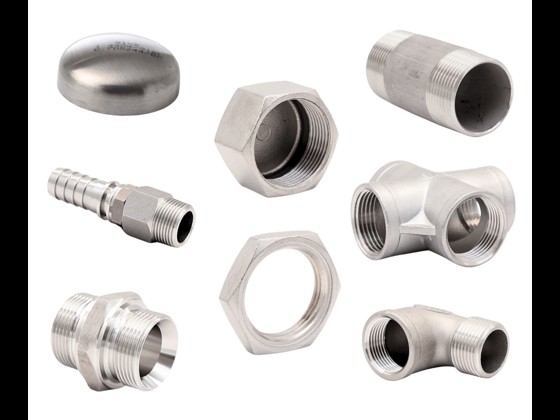
BSP fittings
Barrel nipples, welding nipples, bushings, tees etc.
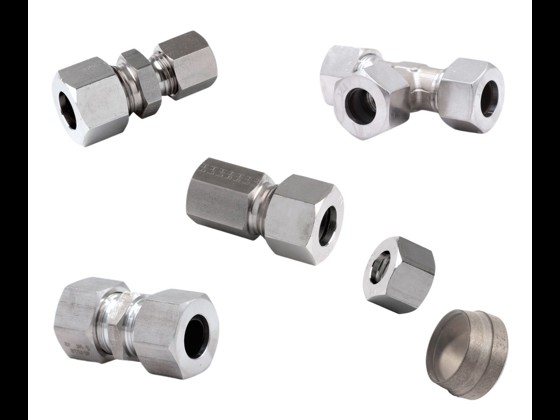
Cutting ring fittings
Connectors, elbows, T-unions, nuts etc.

Dairy fittings
DS, SMS, DIN weld on fittings, union parts etc.
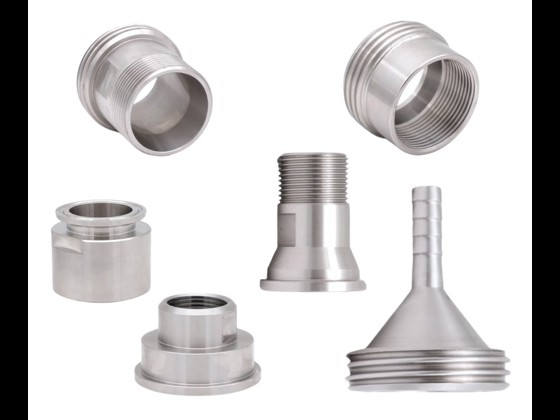
Special dairy fittings
Liners with hose tail, males with BSP nipple etc.
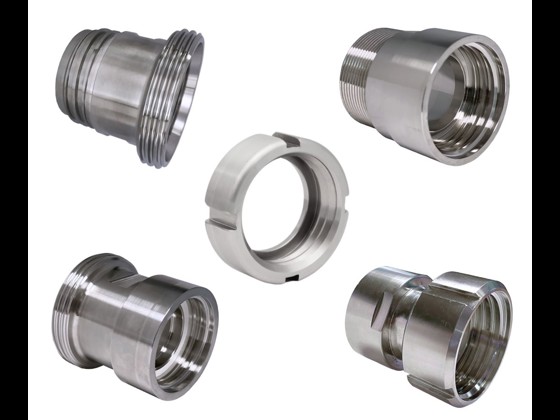
IBC couplings
SAV adapter, nipple, sleeve, etc.
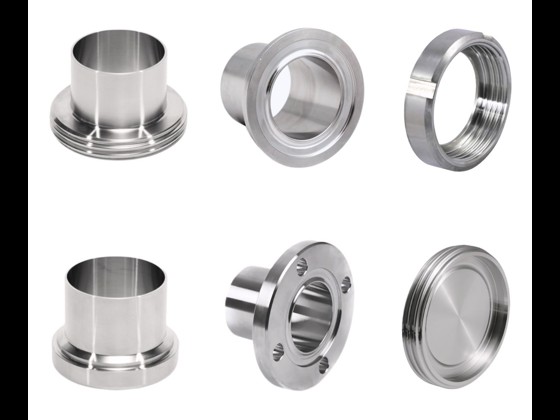
Aseptic union parts
DIN 11864

Vacuum fittings
Flange, ring, etc.
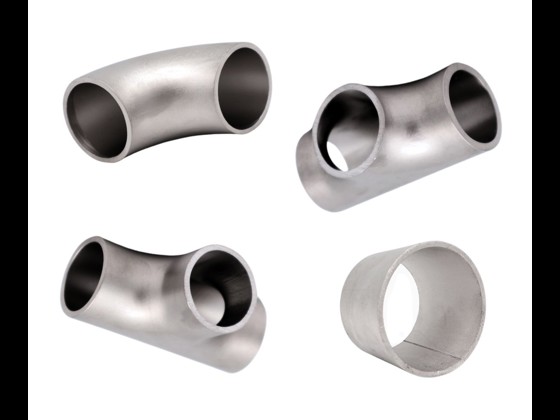
Welding fittings
Elbows, tees & concentric reducers

Stainless steel flanges
Weld on liners, loose flanges etc.
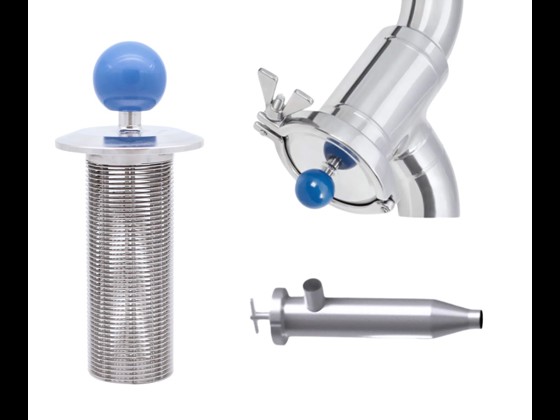
Strainers
Strainers, inserts, Y-types etc.
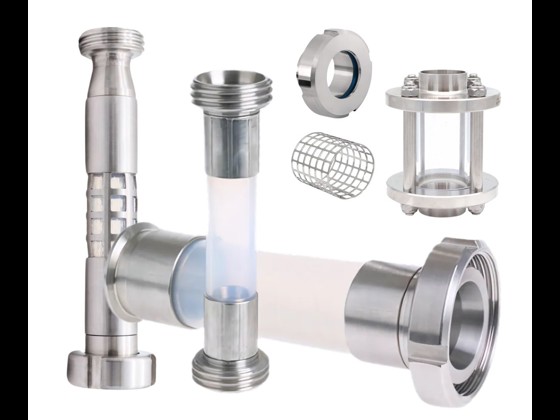
Sight glasses
Sight glasses, protective nets, gaskets etc.
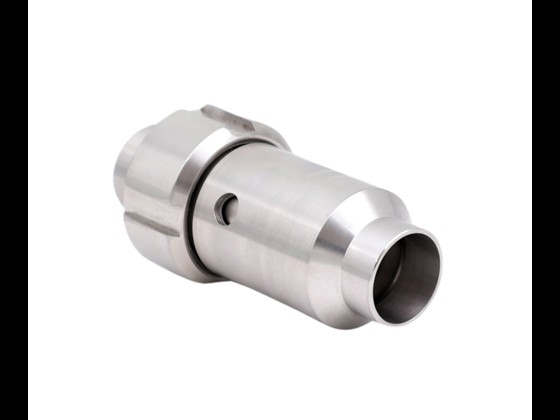
Swivel
Made of stainless steel AISI 316
High-performance stainless steel fittings for the food and pharmaceutical industries
Is your production secured with stainless steel fittings that guarantee both optimal hygiene and long durability? We manufacture and stock stainless steel fittings that are primarily used in the food industry and the pharmaceutical industry.
Fittings are never just fittings. They are the links that must withstand both internal pressure and external influences such as aggressive cleaning agents and large temperature fluctuations. A logical design of your pipe system starts with choosing a component that matches both the plant and the medium being transported.
Overview of our range of stainless steel fittings
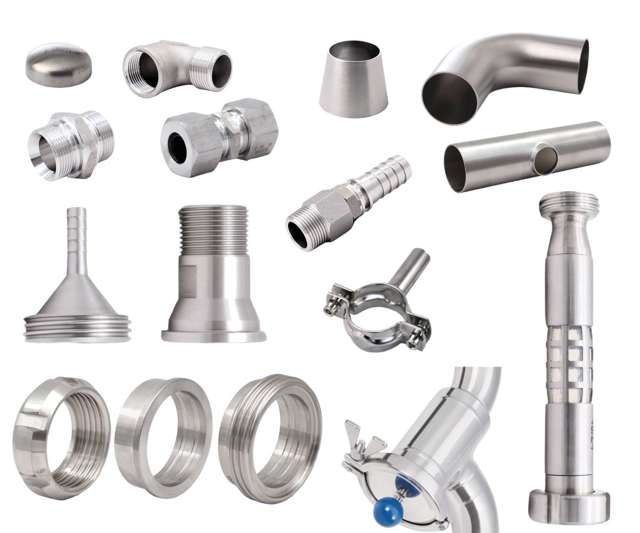
Our range includes a versatile selection of stainless steel fittings, carefully selected to meet every need in your process plant. Our versatile selection includes:
Of these fittings, dairy fittings are primarily used in the food industry and the pharmaceutical industry, while threaded and cutting ring fittings are used in connection with industrial installations for air, water and other liquids.
Our selection of dairy fittings includes everything from pipes and bends to hose tails in ISO or DIN standards, as well as unions for DS, SMS, DIN and Clamp, among others. The range of BSP fittings covers the entire programme of pipes, angles, elbows, crosses, sockets, nipples, unions, hexagon nuts and hose tails.
It can often be challenging to distinguish between the many different standards for food-grade couplings. However, choosing the correct type is essential for both the tightness and overall durability of your systems.
In this video, we take a closer look at the technical differences so that you can always make the right choice between DIN, SMS and DS.
Special fittings
As something quite special, we also stock a wide range of special fittings that are often used to connect different standards with each other – e.g. pipe threads with dairy fittings. It is not unusual for a process plant to require transitions between pipe threads and dairy fittings, and here we offer precise solutions that ensure a tight and hygienic connection. Among our special dairy fittings, you will find hose tails, nipples, bushinges and liners in a variety of shapes and sizes to meet the specific needs of the industry. By using our in-house assembly workshop, where experienced stainless steel smiths assemble your solutions, you are assured of thorough quality assurance and a finish that meets the industry's most stringent requirements.
How are our fittings manufactured?
For us, it is important that every single component in your plant is built to last, which is why our stainless steel fittings are mainly manufactured in acid-proof steel (AISI 316L). By choosing this quality, you get a solution that is extremely resistant to corrosion and can be easily sterilised via CIP/SIP processes. If you need fittings for parts of your production that are not in direct contact with the media – such as hangers or external parts – you can also choose fittings in other steel standards such as AISI 304, which still provide a solid stainless steel quality for the purpose.
Which surface quality should I choose?
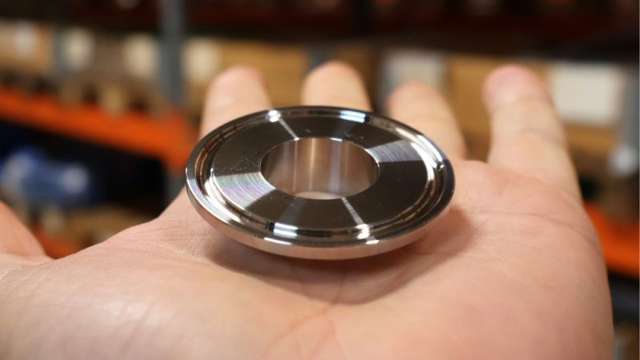
The fight against bacteria starts with surface roughness. Although a low Ra value (the average height of the microscopic peaks and valleys on the surface) is an important benchmark, the number does not tell the whole story about cleanability. It is essential that the surface structure is evenly polished so that cleaning fluids can reach all the way into every microscopic groove. If the surface is rough, biofilm can form, which compromises food safety. We therefore offer different finishes:
- Ra < 0.8 µm: Standard. Typically sufficient for dairies and breweries.
- Ra < 0.4 µm: For the pharmaceutical industry or aseptic facilities, where a completely smooth surface minimises the risk of microorganisms adhering.
Traceability and documentation
In the process industry, there are high requirements for all equipment to be documented. We manufacture our fittings so that they are equipped with a unique batch number that ensures full traceability from raw material to finished product. In practice, traceability means that we can quickly identify a specific batch in the event of any defects and continuously optimise our internal processes to ensure the highest quality in the solutions we deliver.

Our fittings meet the most demanding international standards, including:
- EN 10357-A
- DIN 11851
- ISO 2037
- BS 4825
- DIN 11864 and DIN 11853
By using documented standards, we ensure that your production meets all regulatory requirements.
Let’s find the right fittings for you
If you need help choosing the right stainless steel fittings or have questions about the technical standards in your process plant, you are always welcome to reach out to us. We will help you find the right match for your needs, whether it's complex hygiene requirements or special transition solutions. Call us on +45 7020 0422 or write directly to inquiry@alfotech.eu.
Frequently asked questions

Can your fittings withstand aggressive media?
Yes, our fittings in acid-proof stainless steel AISI 316L are specifically selected for their resistance to chemicals and corrosion.
What is the difference between AISI 304 and AISI 316L in practice?
In most process plants, AISI 316L is used for parts in direct contact with the medium due to its corrosion resistance. AISI 304 is often used for external parts such as nuts, where the requirements are less critical.
How does surface roughness affect my cleaning?
A lower Ra value means fewer places for bacteria to attach themselves. This means that the plant is easier to clean and dries faster.
Why is it important that my fittings comply with specific standards such as DIN or ISO?
The standards ensure physical fit and set precise requirements for hygiene safety and surface roughness, providing you with the necessary documentation for audits.
 da
da
 de
de
 en
en
 sv
sv